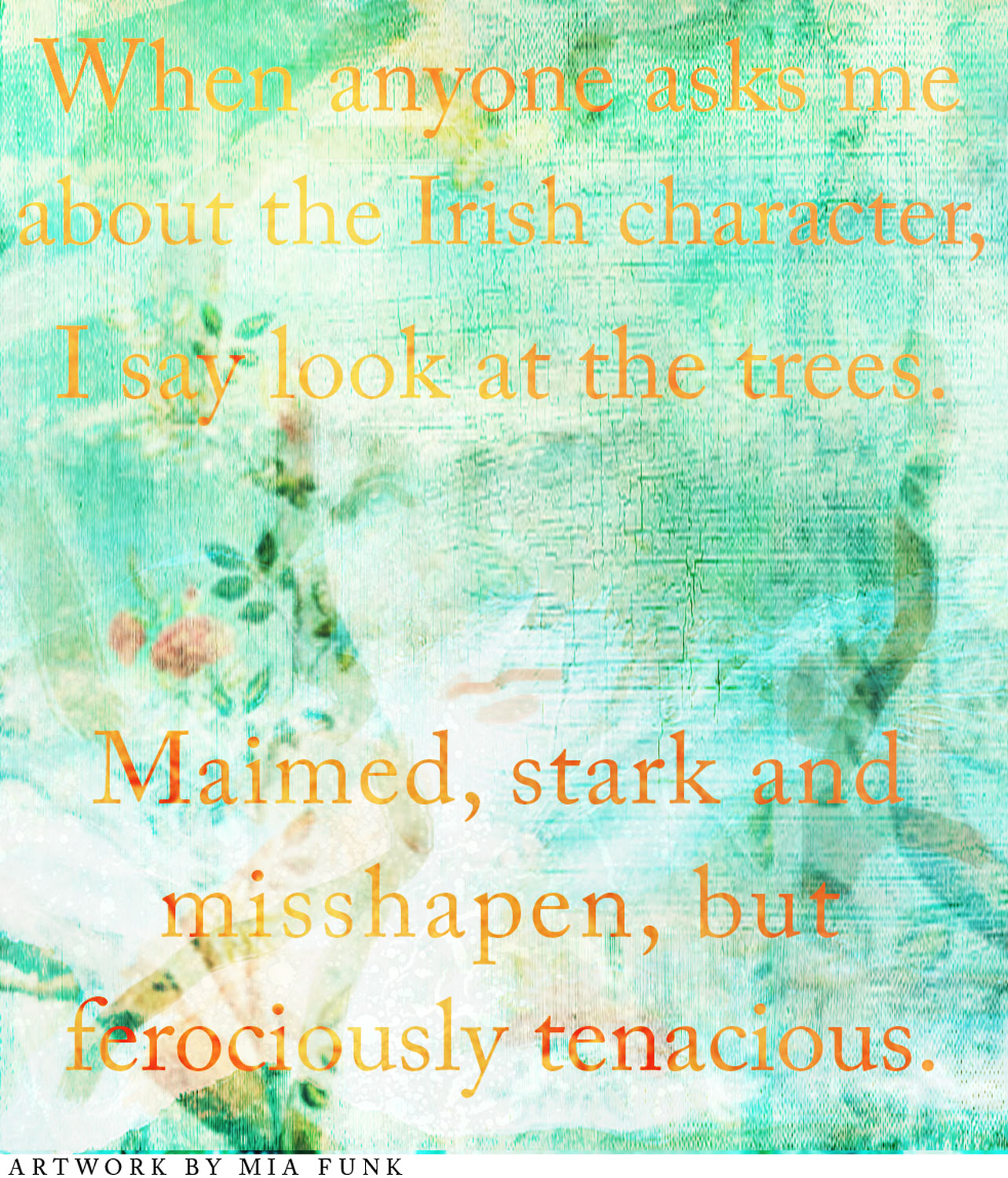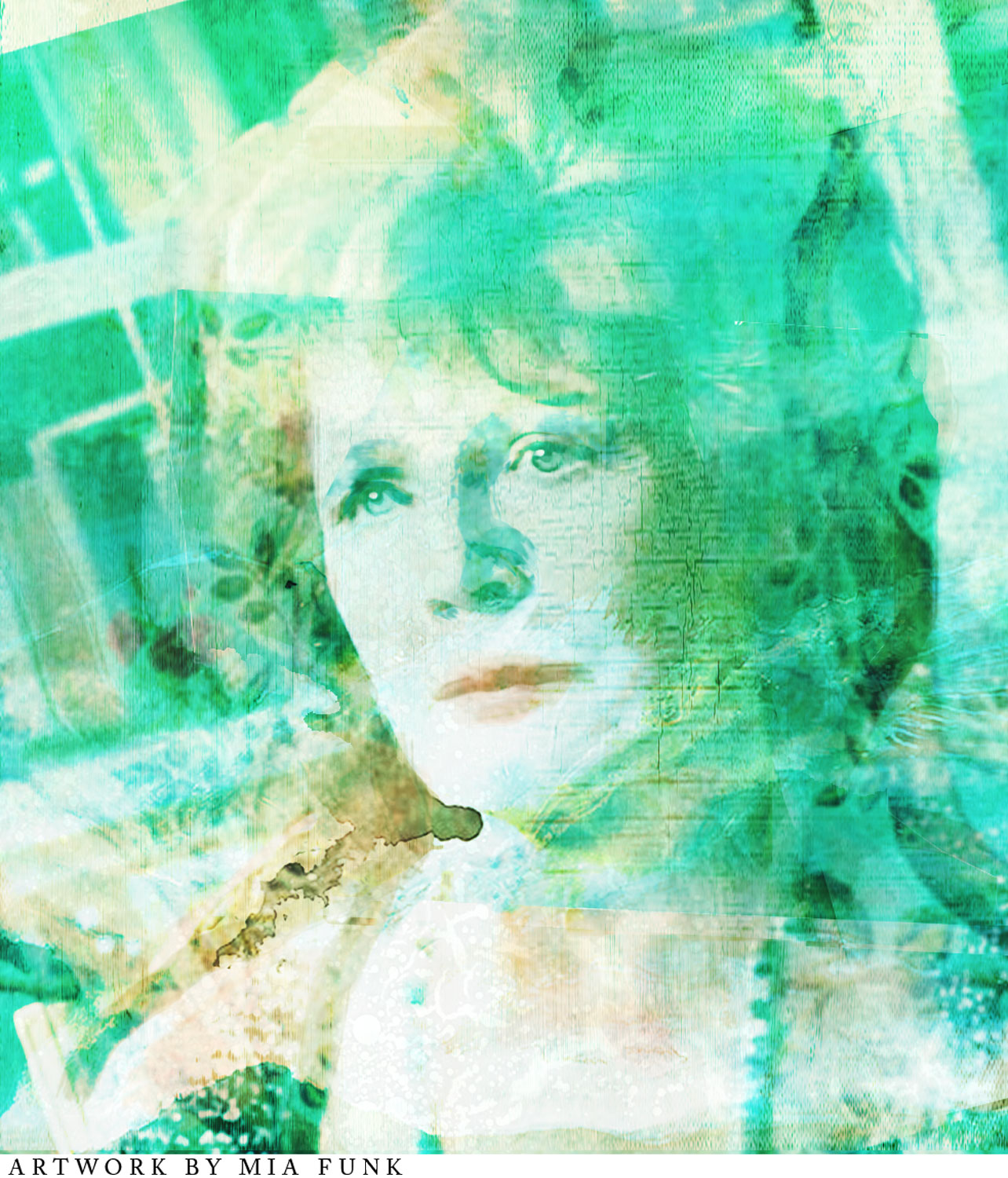Since her debut novel The Country Girls Edna O'Brien has written over twenty works of fiction along with a biography of James Joyce and Lord Byron. She is the recipient of many awards. including the Irish Pen Lifetime Achievement Award, the American National Art's Gold Medal and the Ulysses Medal. Born and raised in the west of Ireland, she has lived in London for many years.
THE CREATIVE PROCESS
What is the special character of Irish writing?
EDNA O’BRIEN
What is the special character? Madness, I would think.
I 've often been asked this question. What is it about Irish writers vs. English writers vs. American writers? There is something about small countries. It's memory, in fact memory is the whetstone of a lot of the anger––because you cannot write a book without... One doesn't write a book A Country Diary of an Edwardian Lady.
You cannot write a book without passion, without some anger and of course without some hope. I think the Irish have that ability, but one of the things that interested me very much is, of course they are good. English language written by Irish people is closer to Elizabethan English than to modern English. In its construction–you think of that rigour like
riverrun, past Eve and Adam's, from swerve of shore to bend of bay, brings us by a commodius vicus of recirculation back to Howth Castle and Environs
Finnegans Wake, James Joyce
That and also that gargantuan passion which has to be, not modified, but it has to be leashed with a reserve. Passion, just passion, is too much. And there is of course evidence of that in some writers of Irish literature. With passion or narcissism, which is another example, when it's both expressed and when it's held back.
Two lines in Ulysses, Stephen Dedalus, full of soft sounds and broken sentences, and it goes into four lines which are actually perfect rhymes and then suddenly through, and then suddenly two choices. He says, "What the bloody hell was it?"
It's that always being mindful–and this is true of any writer–but because the Irish sometimes tend to be over the top, in the back of one's mind there's this voice that's saying: Yes, go over the top and then come back. And then come back.
And I'm so sorry I don't know. I suddenly can't remember the Joyce lines.
He heard the choir of voices in the kitchen echoed and multiplied through an endless reverberation of the choirs of endless generations of children and heard in all the echoes an echo also of the recurring note of weariness and pain. All seemed weary of life even before entering upon it. And he remembered that Newman had heard this note also in the broken lines of Virgil, giving utterance, like the voice of Nature herself, to that pain and weariness yet hope of better things which has been the experience of her children in every time.
* * * * *
He could wait no longer.
From the door of Byron’s public-house to the gate of Clontarf Chapel, from the gate of Clontarf Chapel to the door of Byron’s public-house and then back again to the chapel and then back again to the public- house he had paced slowly at first, planting his steps scrupulously in the spaces of the patchwork of the footpath, then timing their fall to the fall of verses. A full hour had passed since his father had gone in with Dan Crosby, the tutor, to find out for him something about the university. For a full hour he had paced up and down, waiting: but he could wait no longer.
Portrait of the Artist as a Young Man, James Joyce
It's a moment of complete indulgence, twinned with a moment of humor and caution.
So there are–there's no doubt about it–amazing Irish writers, including the gentleman who I believe who still haunts these streets and lived in rue Saint Jacques, and that's Mr. Beckett. He wrote in French because he said he didn't want to be... He was a very, very hard wordsmith. Somebody had said it was all rubbish, that it was all influenced by Joyce. So he would write in French because it was a cleaner language. -- And yet if you read Beckett and read in French. Someone has read to me sometimes the speeches. But read them. They are totally, internally Irish. And it's something every writer carries in them in their heart. Carries–it's a big statement, but there's a small truth within the kernel of it–carries the history, the geography, the rules and the songs of the place they come from. It's inescapable. And to throw it away or to lose it is a tragedy. And to throw it away is a crime.
So, for all my complaints about my native land, I am glad to be in there on that bus because it was a lovely thing to have. There are a lot of them driving that bus, I'm just one of the passengers.
This was recorded outdoors during the Festival des Écrivains, so parts of the audio were poor. Apart from a few lines which were inaudible, this is a verbatim transcription of O’Brien’s public conversation.
Mia Funk is an artist, interviewer and founder of The Creative Process.

















































































